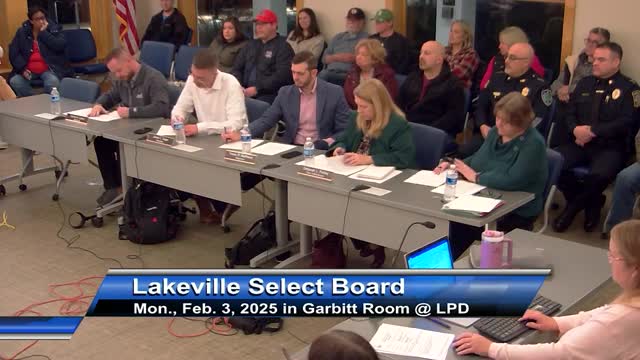Rising summer use, invasive weeds and state ownership complicate management of Assawompset and Long Ponds
Get AI-powered insights, summaries, and transcripts
Subscribe
Summary
Officials from Lakeville and Freetown discussed overcrowding at the shared boat ramp, invasive‑species risk, parking overflow and limitations imposed by state ownership during a joint meeting. They heard that a staffed community approach and signage were recommended by state representatives rather than a state‑funded boat wash station.
Town leaders from Lakeville and Freetown used a joint meeting to discuss summer crowding, parking and invasive‑species concerns at Assawompset and Long Ponds, where activity at the boat ramp has increased steadily in recent years.
Why it matters
The ponds are shared recreational assets that draw heavy summer use. Officials said overcrowding at the boat ramp leads to parking on nearby roadways and additional calls for police and emergency response; the slipping condition of the ramp and limits on what fees the towns can charge complicate maintenance and enforcement.
Key points from the discussion
Boat ramp use and parking: Town representatives said the ramp parking frequently fills, pushing cars and trailers onto Route 18 and adjacent streets. Parking congestion has prompted signage, selective parking bans near intersections, and occasional enforcement. The increase in watercraft and trailers has raised public‑safety concerns as well as calls for added patrols.
State ownership and fee limits: Officials reported that although the ramp and parking parcel sit within Freetown, ownership rests with the Commonwealth. That ownership constrains local authority: ramp fees and any material changes to use or fee structure require state approval. Speakers noted the difficulty of raising fees in past years — increasing from $5 to $10 was described as hard to secure — and said the towns cannot unilaterally raise parking charges for revenue beyond covering operation costs without state sign‑off.
Boat wash and invasive species: Town officials said state staff and stakeholders concluded a hot‑water boat wash station was not practical at the ramp site. Instead, state guidance emphasized community‑run operations and visual inspections by attendants to limit the introduction of invasive weeds such as milfoil. Towns were urged to recruit invested pond residents and associations to staff inspections, rather than relying solely on seasonal attendants focused on fee collection.
Enforcement and marine capability: Freetown officials noted they do not have a dedicated marine unit and have at times requested mutual aid and assistance from Lakeville’s marine unit and state environmental police. Speakers said adding a jointly staffed marine unit would require funding for training, equipment and personnel and could draw patrol resources away from other duties.
Recommendations and next steps
Participants encouraged continued intermunicipal cooperation, outreach to pond associations for volunteer staffing of the ramp, and coordination with state representatives for any fee or ramp construction proposals. No formal votes were taken on changes to ramp operations during the meeting.
